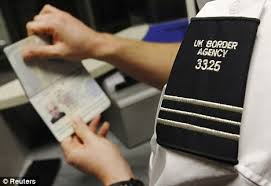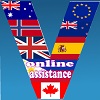
Family Sponsorship and Migration to the UK[cn-social-icon]
 As of April of 2015, UK and Visa Immigration has new guidelines to follow as to meet by a British citizen, UK settled person to be able to sponsor his/her non – EEA partner and dependent child to live and remain in the UK indefinitely. This is in line with the minimum income threshold requirement on which the sponsor is able to meet when submitting the application under such category of family reunification taking into account the 5 – year routes settlement in the U.K as a spouse / partner of the sponsor. As current income threshold requirement is 18,600 £ and may increase if additional dependent child is included in the application whereby, an additional gross annual income of 3, 800 £ is required for the 1st child to be sponsored on top of the partner’s requirement income and additional 2,400 £ for each of the children included in the application as a sample below.
As of April of 2015, UK and Visa Immigration has new guidelines to follow as to meet by a British citizen, UK settled person to be able to sponsor his/her non – EEA partner and dependent child to live and remain in the UK indefinitely. This is in line with the minimum income threshold requirement on which the sponsor is able to meet when submitting the application under such category of family reunification taking into account the 5 – year routes settlement in the U.K as a spouse / partner of the sponsor. As current income threshold requirement is 18,600 £ and may increase if additional dependent child is included in the application whereby, an additional gross annual income of 3, 800 £ is required for the 1st child to be sponsored on top of the partner’s requirement income and additional 2,400 £ for each of the children included in the application as a sample below.
- Partner without children – 18,600 £
- 1 child in addition to the partner – 22,400 £
- 2 children in addition to the partner – 24,800 £
- 3 children in addition to the partner – 27,200 £
That figures above make a clear income threshold requirement for the sponsor to meet, depending on individual circumstances as to how many dependents are included in the application, noting that if a certain application has not able to meet the income requirement due to the income remission at the time of application, it would result in a refusal, but if the income threshold requirements are met, as outlined above the likelihood that the application will be approved. In addition, to the higher financial requirement which applies to the migrant partner, this is applicable until he/she qualifies for the settlement in the U.K, in spite of the dependent child included in the application who may turns 18 before the eligibility of the partner to qualify for the settlement in the U.K. However, if the child has turned 18+, the income derived and savings may also be included and counted to meet such financial requirement. An exemption from the financial requirement that is not applicable to the child who; is a British Citizen (including adopted child who acquires British citizenship); is an EEA national (except non- EEA spouse or partner is being accompanied or joined the EEA child of a former relationship, who does not have a permit to be admitted in the UK, under the immigration (EEA) regulations 2006; and if the child is settled in the UK.
As the income and cash savings may differ according to the sources on where it was derived by the sponsor or partner. As it is possible to combine their income and savings e.g, sponsor, partner and a child that turned 18+ and working to be able to meet a financial requirement- as third party sponsorship that “promises” support, or ‘financial support’ is NOT recognized under the guidelines of ruling for financial requirement. Unless if the ‘third party’ has given a gift as an additional source of cash savings for the applicant’s partner or sponsor in relation to their application, and able to demonstrate that they can hold for such, for a period of 6 months before the submission of their application.
One may also present a bank statement to support of the sources of income and savings or an alternative for the bank statement could be; a passbook, an official letter from the bank, a letter from the financial institution (not with the excluded institution) – these evidences applicable to your circumstances must be dated no earlier than 28 days, prior to the date of application and must be original.
Further to this, the “adequate of maintenance”, equates the financial income requirement, if you are the recipient of one of the following: care’s allowance, disability living allowance, severe disablement allowance, and industrial injuries disablement benefit, attendance allowance, personal independence payment, Armed Forces independence payment, disablement pension or war pension; a proper documentation as to demonstrate to such claim should included in the application to consider, as a replacement for the financial income threshold requirement.
What are the 5 ways to meet the financial requirement?
- Income from salaried or non- salaried employment of the partner and or of the applicant if they are in the UK with permission to work)
- Non- employment income, income from property rental or dividends from shares
- Cash saving’s of the applicant partner and or the applicant, above 16,000 £ held by the partner/or applicant for the last six months and it’s under their control. At the entry clearance/ initial leave to remain stage and further leave stage, the amount above 16,000£ must be divided by 2.5 (to reflect the 2.5 year or 30 month period before the applicant will have to make a further application) to give the amount which can be added to the income. Formula: Cash savings minus 16,000 £ divided by 2.5 = the amount, (plus) to be added to the income (to meet the financial requirement), for example a total savings held by 62, 500 £ – 16,000 = 46,500 £ / 2.5 = 18,600£
- State (UK or foreign) private pension of the partner/applicant
- Income from self-employment
Above 5 ways may combine or may not combine to meet the financial requirement, and further guidance, table computation as to such on how the applicant or partner may meet is available for your own reference.
What are the sources that are not permitted or recognized?
In the context of sources of income to meet the financial income requirement, much of the list below is not counted as sources of income as follows:
- Any financial support from third party (other than child maintenance)
- Income from other persons who lives from the same household – except for the child that turned 18
+ where his/her income derived may add up to meet the financial income requirement - Loans and credit facilities
- Income-related benefits: like employment support allowance, income support, housing benefit, tax benefit support or job seeker’s allowance support
- The contributory benefits like, job seeker’s support allowance or employment support, and incapacity benefit
- Child benefit, working tax credit, child tax credit, universal credit, unemployability allowance, and others.
Source: Immigration Directorate Instruction, Family Migration- Home office
